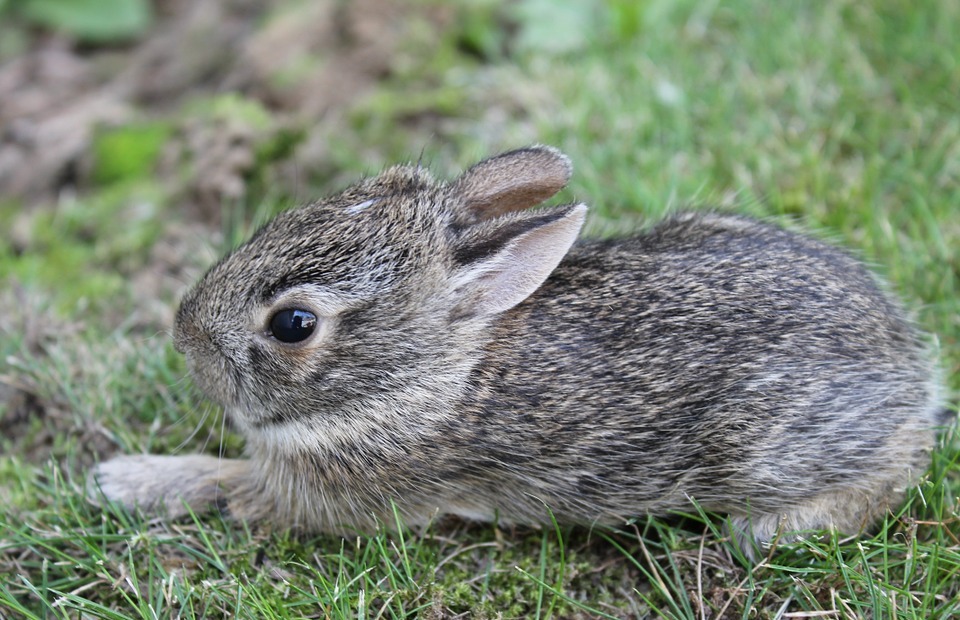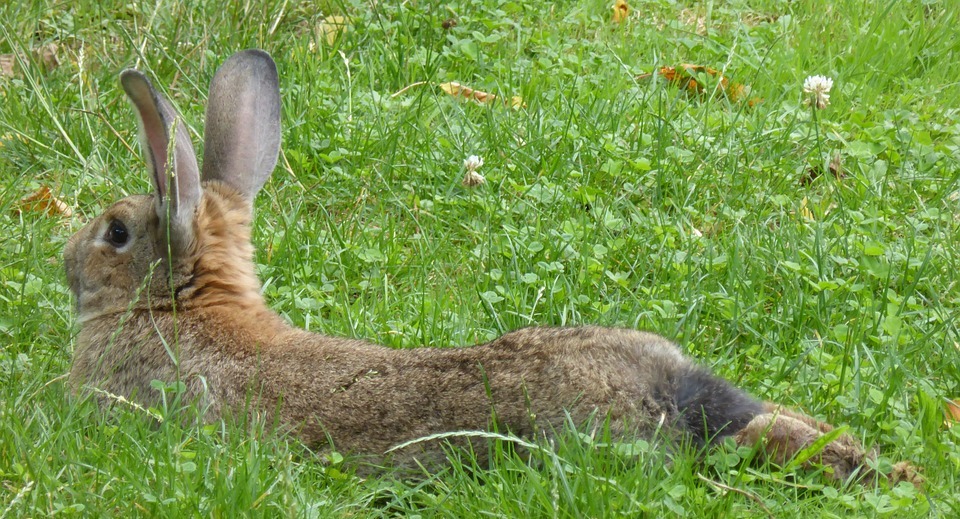This comprehensive guide explores the importance of vaccinations for your beloved rabbit. We'll delve into the potential dangers of common rabbit diseases, outline the essential vaccines, and provide a clear understanding of vaccination schedules. We'll also cover the benefits of vaccination, answer common questions, and address potential concerns.
Part 1: Understanding the Importance of Vaccinations

1.1. Why Are Vaccinations Important for Rabbits?
Rabbits, like humans, are susceptible to various diseases, some of which can be fatal. Vaccinations play a crucial role in protecting your rabbit from these illnesses by introducing a weakened or inactive form of the disease-causing agent, triggering an immune response. This response prepares the rabbit’s body to fight off future infections, acting as a shield against potential threats.
1.2. The Benefits of Vaccinating Your Rabbit
Protection from Deadly Diseases: Vaccinations safeguard your rabbit from potentially fatal diseases like Myxomatosis and Rabbit Haemorrhagic Disease (RHD), significantly reducing the risk of serious illness or death.
Reduced Veterinary Costs: While initial vaccination costs may seem like an expense, they often pale in comparison to the costs associated with treating a serious illness, which can include extensive veterinary care, medications, and even hospitalization.
Peace of Mind: Knowing your rabbit is vaccinated provides peace of mind, allowing you to enjoy your pet’s company without the constant worry of potential health threats.
Contributing to Herd Immunity: By vaccinating your rabbit, you contribute to herd immunity, helping to protect other rabbits in your community from the spread of contagious diseases. This collective immunity protects rabbits that are unable to be vaccinated due to health reasons or age.
1.3. Understanding the Risks of Not Vaccinating
Leaving your rabbit unvaccinated exposes it to various risks:
Contracting Serious Illnesses: Unvaccinated rabbits are at a significantly higher risk of contracting potentially fatal diseases, making them vulnerable to the devastating consequences of these illnesses.
High Mortality Rates: Diseases like Myxomatosis and RHD have devastatingly high mortality rates, with the potential to claim the lives of unvaccinated rabbits within days.
Severe Health Complications: Even if your rabbit survives a serious illness, it may suffer long-term health complications, requiring ongoing veterinary care and potentially impacting their quality of life.
Financial Burden: Treating an unvaccinated rabbit for a serious illness can be costly, placing a significant financial burden on rabbit owners, especially if the illness requires extensive veterinary care or hospitalization.
Part 2: Unveiling the Most Common Rabbit Diseases

2.1. Myxomatosis
Myxomatosis is a viral disease transmitted by insects like mosquitoes, fleas, and biting flies. It causes disfigurement, swelling, and lesions on the face, ears, and genitals, ultimately leading to respiratory distress and death.
Symptoms: The symptoms of Myxomatosis are often dramatic and easily recognizable. Rabbits may display:
Swollen eyelids and face
Thickening of ears and genitals
Discharge from the nose and eyes
Difficulty breathing
Loss of appetite
Lethargy
Transmission: Myxomatosis is primarily spread through the bites of infected insects, but it can also be transmitted through direct contact with an infected rabbit or contaminated objects.
Prevention: Vaccinations are highly effective in preventing Myxomatosis, offering a critical layer of protection for your rabbit.
2.2. Rabbit Haemorrhagic Disease (RHD)
RHD is a highly contagious viral disease that can be fatal within 24-72 hours. It affects the liver and internal organs, causing internal bleeding and death. RHD is a serious threat to rabbit populations worldwide.
Symptoms: RHD progresses rapidly, often with sudden onset of symptoms, making it crucial to act quickly if you suspect your rabbit may be infected:
Fever
Lethargy
Loss of appetite
Seizures
Respiratory distress
Death
Transmission: RHD is primarily spread through direct contact with an infected rabbit or their bodily fluids, such as saliva, urine, and faeces. It can also be spread through contaminated objects, food, or water.
Prevention: Vaccination is crucial for protecting rabbits from RHD, significantly reducing the risk of infection and death.
Part 3: Deciphering the Essential Rabbit Vaccinations
3.1. Myxomatosis Vaccination
Vaccine Type: The Myxomatosis vaccine is an inactivated vaccine, meaning it contains a killed version of the virus. This allows the rabbit's immune system to develop antibodies without risking infection.
Administration: The Myxomatosis vaccine is usually administered as a single injection under the skin.
Protection: The Myxomatosis vaccine provides strong protection against the disease for at least a year, often longer.
Booster Shots: Annual booster injections are crucial to maintain immunity against Myxomatosis, ensuring your rabbit remains protected throughout their life.
3.2. Rabbit Haemorrhagic Disease (RHD) Vaccination
Vaccine Types: Multiple RHD vaccines are available, offering protection against various RHD strains. These vaccines are inactivated, containing killed versions of the virus, similar to the Myxomatosis vaccine.
Administration: RHD vaccines are usually administered as a single injection under the skin.
Protection: RHD vaccines provide strong protection against the disease for at least a year.
Booster Shots: Annual booster injections are essential to maintain immunity against RHD, providing ongoing protection for your rabbit.
3.3. Other Potentially Available Vaccines
While Myxomatosis and RHD are the most common vaccinations, some vets may offer other vaccines, including:
Bordetella Bronchiseptica: A bacterial infection causing respiratory problems, particularly in younger rabbits.
Pasteurella Multocida: A bacterial infection causing pneumonia, abscesses, and other health issues. These vaccines are typically recommended for rabbits living in multi-rabbit households or those with compromised immune systems.
Part 4: Understanding Vaccination Schedules
4.1. Initial Vaccination Schedule
The initial vaccination schedule for rabbits typically involves a series of injections:
First Vaccination: Usually administered around 5-6 weeks of age. This initial vaccination lays the foundation for immunity.
Booster Injection: A booster is typically given 2-3 weeks after the initial vaccination. This booster strengthens the immune response, providing robust protection against the target diseases.
Annual Boosters: Subsequent booster injections are usually required annually to maintain immunity. These boosters serve as reminders for the immune system, ensuring it remains prepared to fight off any future infections.
4.2. Factors Influencing Vaccination Schedules
Several factors can influence the specific vaccination schedule for your rabbit, including:
Age: Very young rabbits may require different vaccination schedules compared to older rabbits. Their immune systems are still developing, requiring adjustments to the vaccination schedule.
Health Status: A rabbit with an underlying health condition may require adjusted vaccination schedules. Vets may recommend more frequent boosters or different vaccine formulations to suit their individual health needs.
Lifestyle: Rabbits exposed to a higher risk of disease may benefit from more frequent vaccinations. Rabbits living in multi-rabbit households or those frequently exposed to other rabbits may require more frequent booster shots.
Local Prevalence: The prevalence of specific diseases in your area may influence vaccination recommendations. Vets may tailor vaccination schedules based on the local prevalence of diseases, ensuring rabbits receive the necessary protection against the most prevalent threats.
Part 5: Addressing Common Concerns
5.1. Safety of Vaccinations
Possible Side Effects: Vaccinations are generally safe, but some rabbits may experience mild side effects such as lethargy, decreased appetite, or a temporary lump at the injection site. These side effects are usually temporary and resolve within a day or two.
Serious Side Effects: Serious side effects are rare, and a veterinarian can address any concerns you may have. If you notice any severe or persistent side effects, contact your vet immediately for guidance.
5.2. Cost of Vaccinations
Initial Costs: The initial vaccination cost will vary depending on the vaccine type, your vet’s fees, and your location. It's essential to discuss the cost with your vet beforehand to plan accordingly.
Ongoing Costs: Annual booster injections will require ongoing costs. These costs are often offset by the reduced risk of expensive illness treatments.
5.3. Vaccination and Pregnancy
Vaccination During Pregnancy: It’s usually safe to vaccinate pregnant rabbits, but it’s important to consult your vet for their specific recommendations. Vets can determine the safest time to vaccinate based on the stage of pregnancy.
Vaccination for Nursing Rabbits: It’s typically safe to vaccinate nursing rabbits as antibodies from the mother’s milk can provide some protection to the kits. Vets can assess the risk-benefit profile and recommend the most appropriate approach for nursing rabbits.
5.4. Rabbits and the Risks of Overdose
Potential for Overdose: Overdosing on vaccinations is uncommon, as vets carefully calculate the appropriate dosage for each rabbit. Vets have extensive training and experience in administering vaccinations safely.
Signs of Overdose: Symptoms of vaccination overdose are rare, but may include lethargy, weakness, or fever. If you notice any unusual symptoms, contact your vet immediately.
Part 6: FAQs
6.1. Are all rabbits required to be vaccinated?
While not legally required, it’s highly recommended to vaccinate your rabbit against Myxomatosis and RHD, as these diseases can be fatal.
6.2. What if my rabbit is already vaccinated?
If your rabbit has been vaccinated, you must ensure they receive annual booster injections to maintain immunity against these serious diseases.
6.3. Where can I get my rabbit vaccinated?
Rabbits can be vaccinated by a qualified veterinarian. It's essential to choose a vet experienced in rabbit care and vaccination procedures.
6.4. What should I do if my rabbit shows signs of illness after vaccination?
If your rabbit shows any signs of illness after vaccination, consult your vet immediately. Prompt attention can prevent complications and ensure your rabbit receives the necessary care.
6.5. Is it safe for rabbits to be around other unvaccinated rabbits?
Unvaccinated rabbits are at a significantly higher risk of contracting diseases. It’s best to keep unvaccinated rabbits separate from vaccinated rabbits to minimize the risk of infection.
6.6. How long does it take for a rabbit to develop immunity after vaccination?
It typically takes 10-14 days for a rabbit to develop full immunity after vaccination. During this period, it's essential to continue taking precautions to protect your rabbit.
6.7. Can my rabbit get sick from the vaccine?
While the vaccine contains a weakened or inactive form of the disease, it’s impossible to rule out a slight chance of your rabbit contracting the actual disease. However, the risk is minimal compared to the benefits of vaccination. The vaccine protects against the most severe forms of the diseases, significantly reducing the risk of serious illness and death.
6.8. What if my rabbit has never been vaccinated?
If your rabbit has never been vaccinated, it's crucial to consult your vet immediately. They can assess your rabbit's health and recommend the appropriate vaccination schedule. Remember, it's never too late to protect your rabbit from these dangerous diseases.
Everyone is watching
-

Do Rabbits Lay Eggs? (The Surprising Truth)
OTHER TYPES OF PETSThis article will unravel the common misconception that rabbits lay eggs, exploring the fascinating world of r...
-

What's a Group of Rabbits Called? (A Comprehensive Guide)
OTHER TYPES OF PETSThis article delves into the fascinating world of rabbits, exploring the various terms used to describe a grou...
-

Can Rabbits Eat Grapes? A Guide to Safe Rabbit Treats
OTHER TYPES OF PETSThis comprehensive guide will explore the safety and suitability of grapes for rabbits, providing detailed inf...
-

Predators That Hunt Rabbits: A Guide to Natural Enemies
OTHER TYPES OF PETSI've always been fascinated by the circle of life, that delicate dance between predator and prey. Growing up ...
-

Are Rabbits Nocturnal Animals?
OTHER TYPES OF PETSThe question of whether rabbits are nocturnal animals is a fascinating one, with a surprisingly complex answer...
